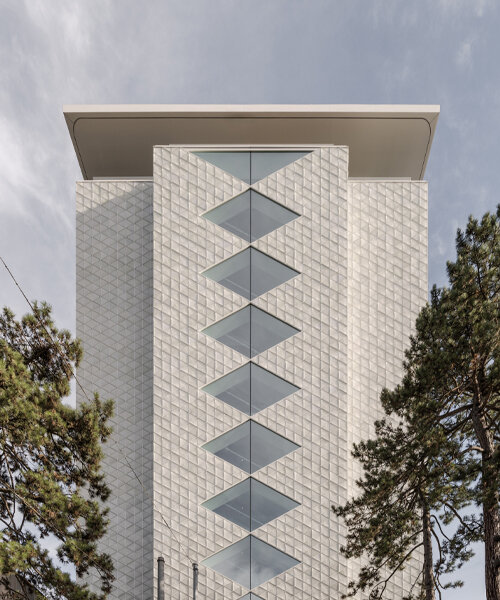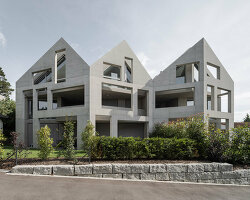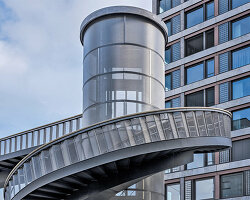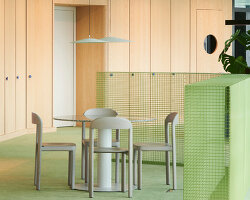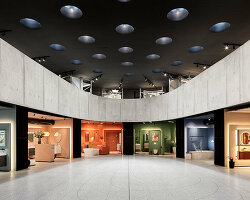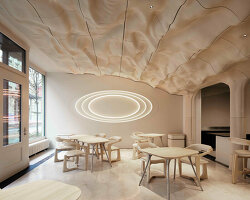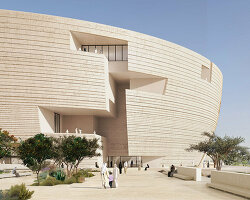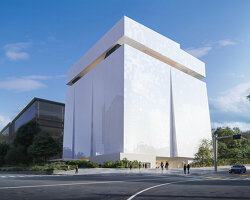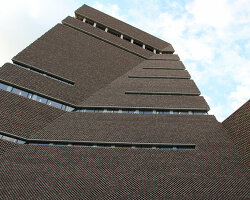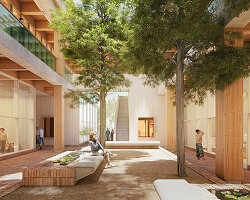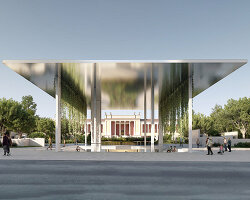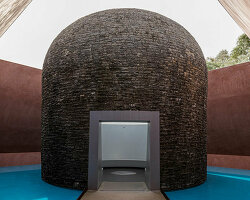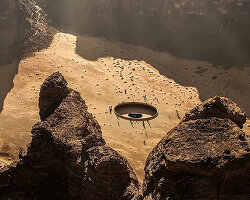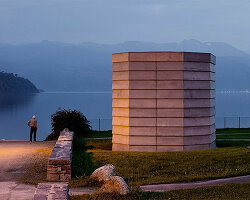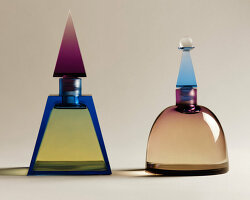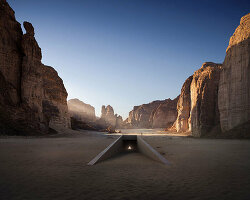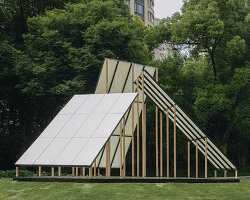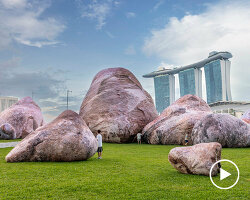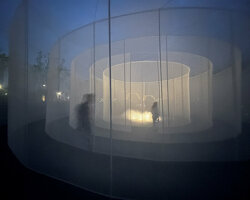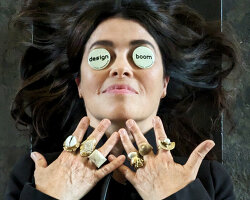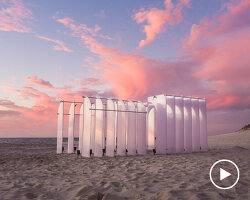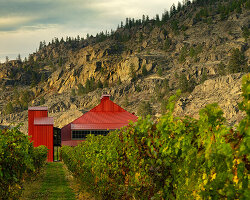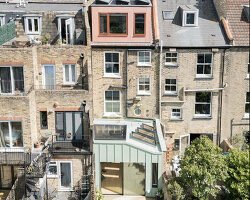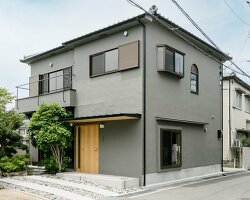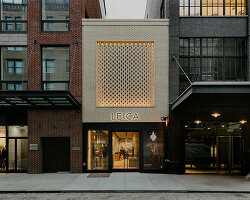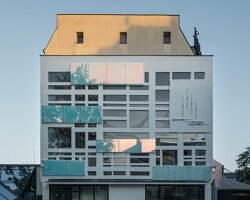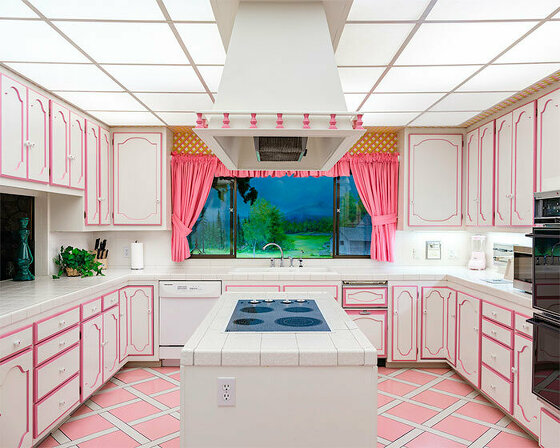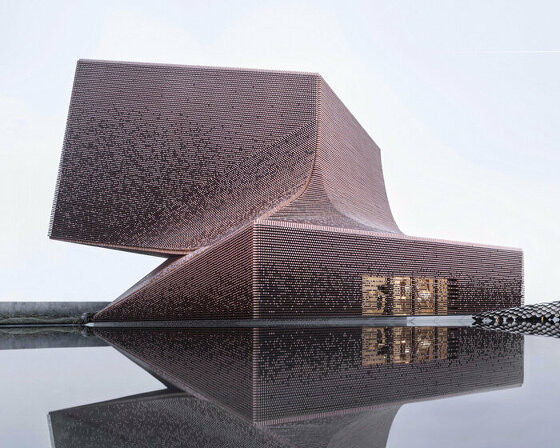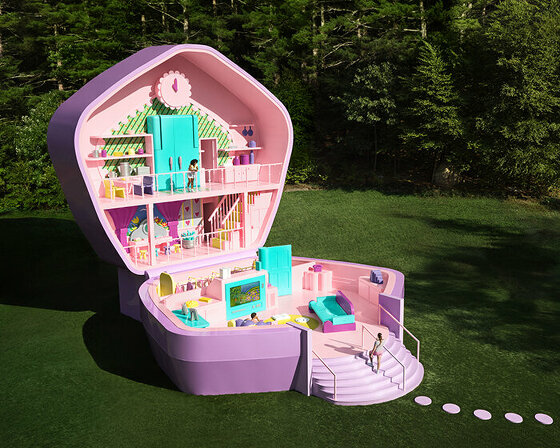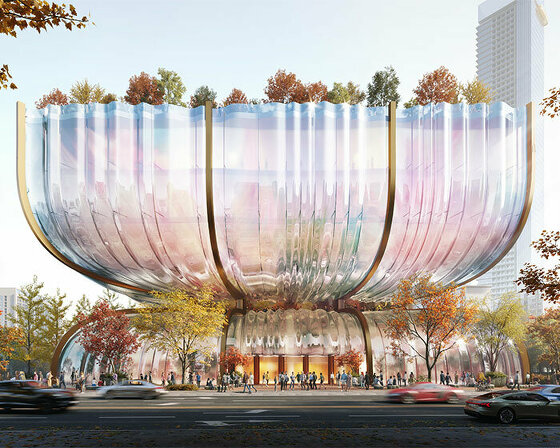helvetia campus basel expansion unfolds in four stages
Herzog & de Meuron is establishing a new identity for Helvetia in central Basel, between Aeschenplatz and the historic St. Alban quarter. Completed in four stages, the 419 project includes three new buildings and three renovated ones, forming a distinctive campus with an understated and predominantly white architecture at the scale of the city block; at a larger scale, two towers – one renovated, one new – create a clear identity amongst the mainly low-rise surroundings. Helvetia’s program features a blend of working space, gathering places, and amenities for all Basel-based employees, while the public gets to enjoy a café, Art Foyer, auditorium, and the B1 Rooftop Bistro, which first opened on April 5, 2024, alongside two light installations by American artist James Turrell, visible from miles away.
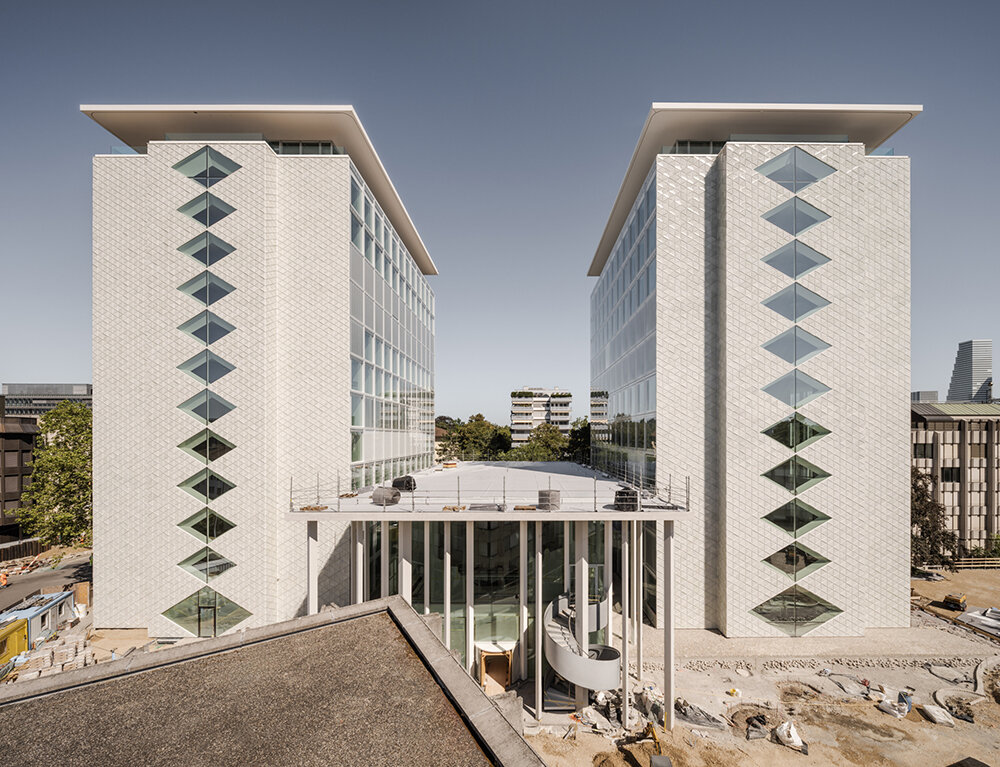
Helvetia Campus Basel | image © Maris Mezulis
herzog & de meuron uplifts the existing 1950s-1970s designs
The Helvetia Basel headquarters have evolved since the 1950s, requiring renovations to address increased density and undefined borders. Recent campus updates by Herzog & de Meuron (see more here) include the removal of some inner courtyard structures to create space for a public park designed by Vogt Landscape Architects. The site now concentrates office functions in the southern block and relocates residential use to the north, opposite the campus on St. Alban-Anlage. The masterplan, implemented in four stages, emphasizes integrating and reusing existing buildings: the renovation and vertical expansion of the 1950s office tower, complemented by a new twin tower and central auditorium, plus a new public park; the renovation and addition to the 1960s administrative building; the renovation and addition to the 1970s administrative building; and last, the deconstruction of the northern administration building and construction of new apartments.
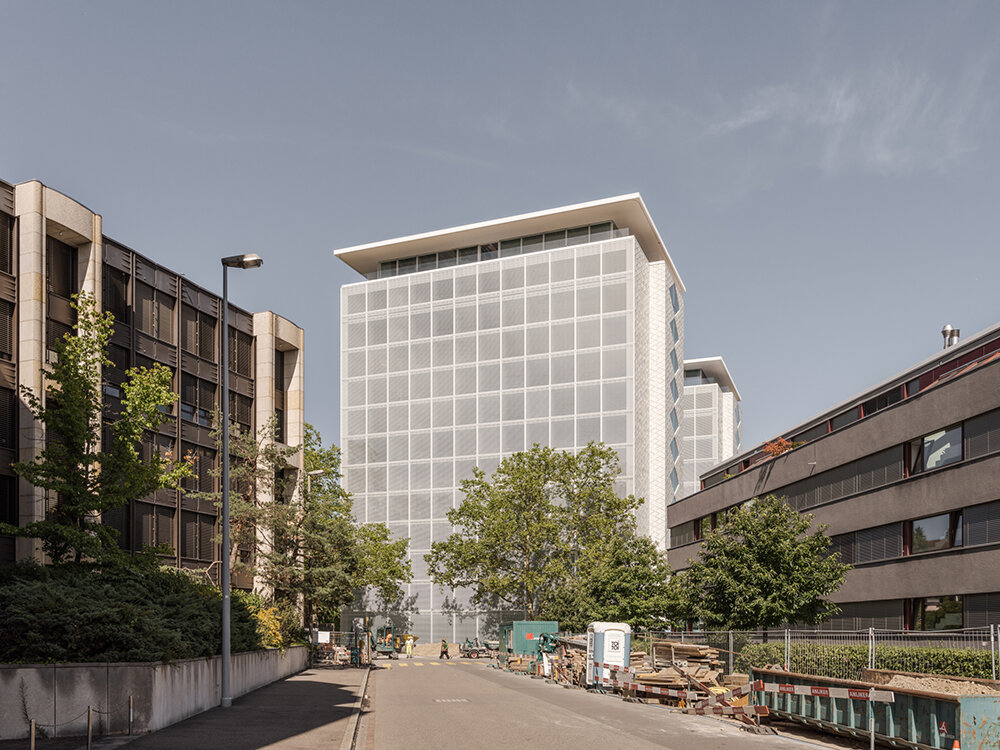
image © Maris Mezulis
The existing office tower was the first building that Patria Insurance (as it then was) built on the St. Alban site in the 1950s. With its extensive conversion and the construction of an adjacent tower, Herzog & de Meuron created a new ensemble, giving the cityscape an instantly recognizable silhouette. With their all-round terraces and cantilevered roof cornices, the top floors are reminiscent of the architectural language of the 1950s. Meanwhile, a new auditorium serves as an open, connective interior plaza with a curved roof and natural stone paving that extends outdoors; its transparent facade contrasts with the towers’ glass facades, incorporating traditional Venetian cast glass tiles. A central staircase and spiral outdoor one connect the auditorium to the green space.
Designed with bird protection measures, the east and west elevations feature a closed cavity facade for maximum light gain, using prefabricated elements for quick installation and allowing independent sunshade control. The north and south facades boast large diamond-shaped windows, influenced by diagonal staircases, and are clad with triangular cast-glass tiles arranged randomly by computer for a dynamic appearance.
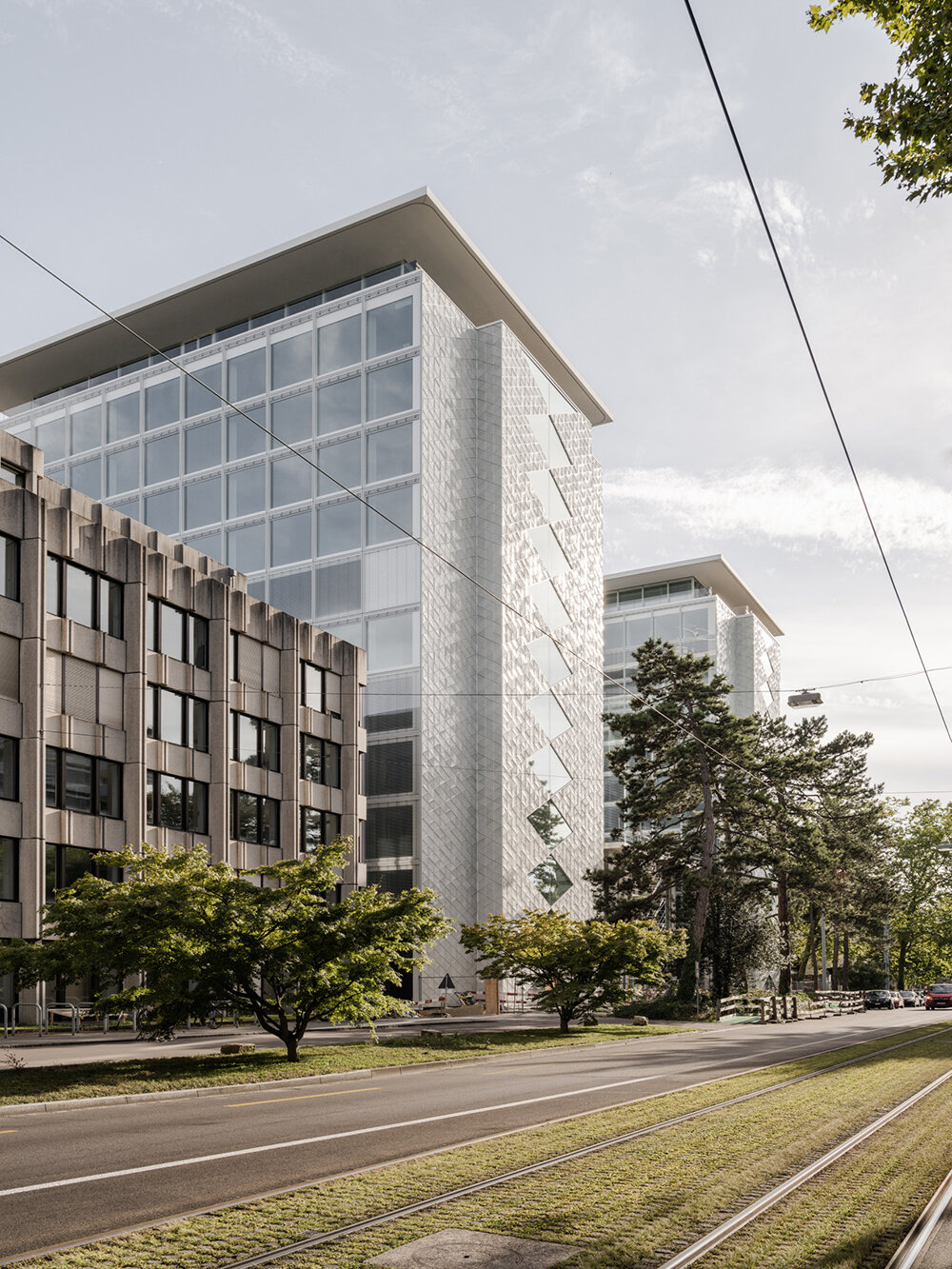
image © Maris Mezulis
a sustainable and public program at the helvetia campus basel
The Helvetia Campus Basel follows sustainable urban planning, integrating most existing structures and emphasizing easy deconstruction and reuse. It meets DGNB and SGNI Platinum certification standards, with large photovoltaic systems on the roofs providing significant electricity. Completing the masterplan is a new 3,500 m² public park, introducing biodiversity and a microclimate that reflects the campus’s transparent, inviting architecture.
The opening of the campus to the public, reflected in the transparent, inviting architecture, extends from the spacious shaded park to the Helvetia Art Foyer, a public art exhibition space on the ground floor of the renovated tower, and the auditorium, to the roof of the existing tower, where the publicly accessible rooftop café invites visitors to linger. Like a ‘window’ to the city, the Helvetia Art Foyer offers a highly visible, public platform to artists and works both from the collection as well as to new acquisitions. A large video wall is installed within the main auditorium entrance, displaying video art from the extensive Helvetia collection. Further artworks are on rotating display on all 21 office floors.
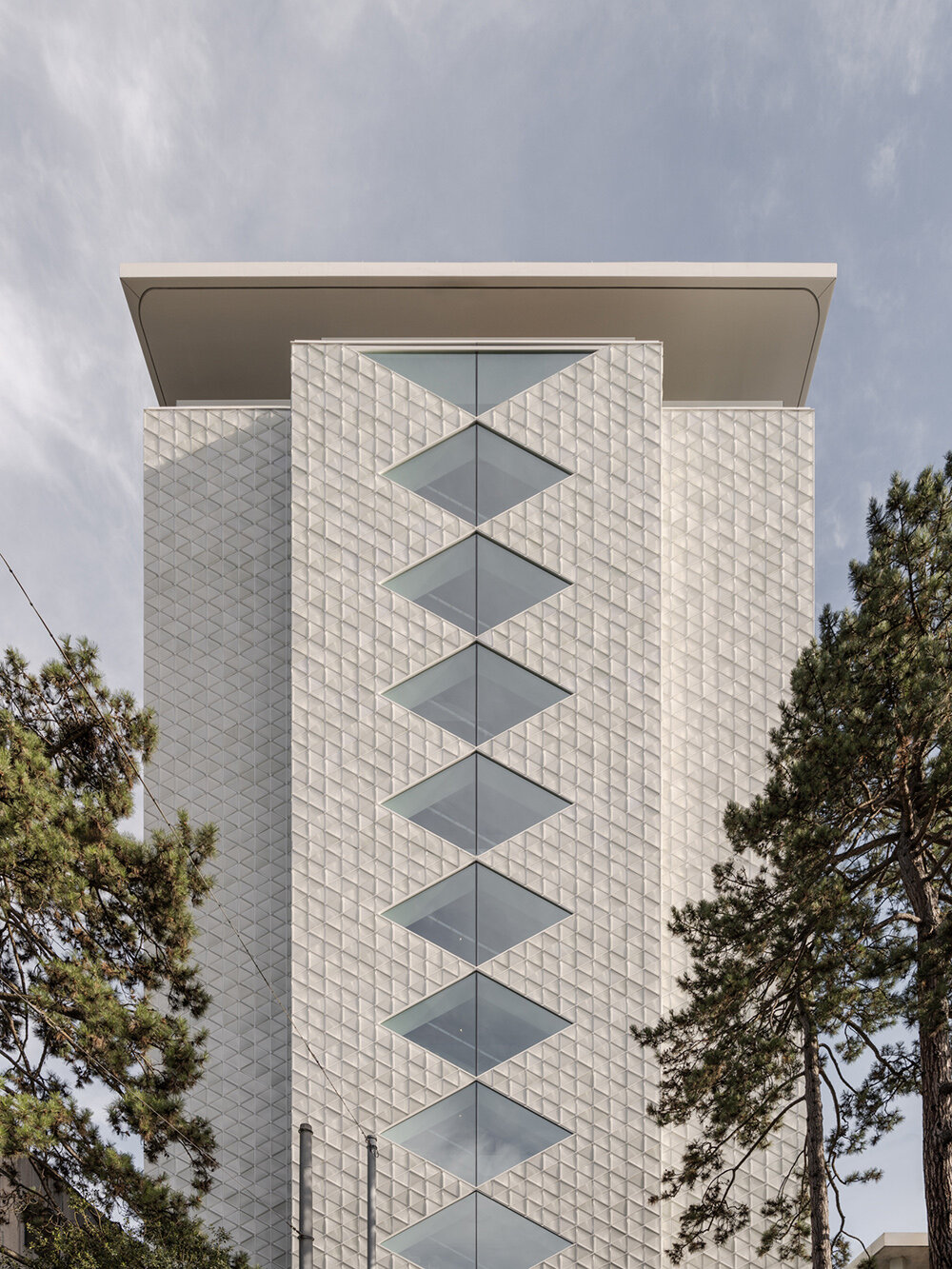
image © Maris Mezulis
two expansive light installaitions by james turrell
The Helvetia campus art program also spotlights two site-specific installations by renowned artist James Turrell. Diamond Glass (2023), a light installation within the entrance lobby of the existing tower, welcomes visitors to the Helvetia Art Foyer and newly-opened rooftop bistro and directly references the building’s facade. In the evening, the larger-scale light installation Night Raiment (2024) illuminates the overhanging eaves of the two towers, creating a dialogue between the campus and the city beyond.
The public B1 Rooftop Bistro in the western tower serves as a meeting place for the Gellert district and a club with a unique ambiance, accommodating up to 100 people. The western of the two campus towers has long been a prominent feature of the Gellert district. James Turrell has selected the roof cornices of the 1950s office tower as a virtual canvas for his latest work, Night Raiment (2024). Known for his skyspaces and light installations, the artist has designed a lighting concept that integrates into the architecture of the Helvetia campus. The B1 Rooftop Bistro bathes in atmospheric light, with striking effects that change color almost imperceptibly.
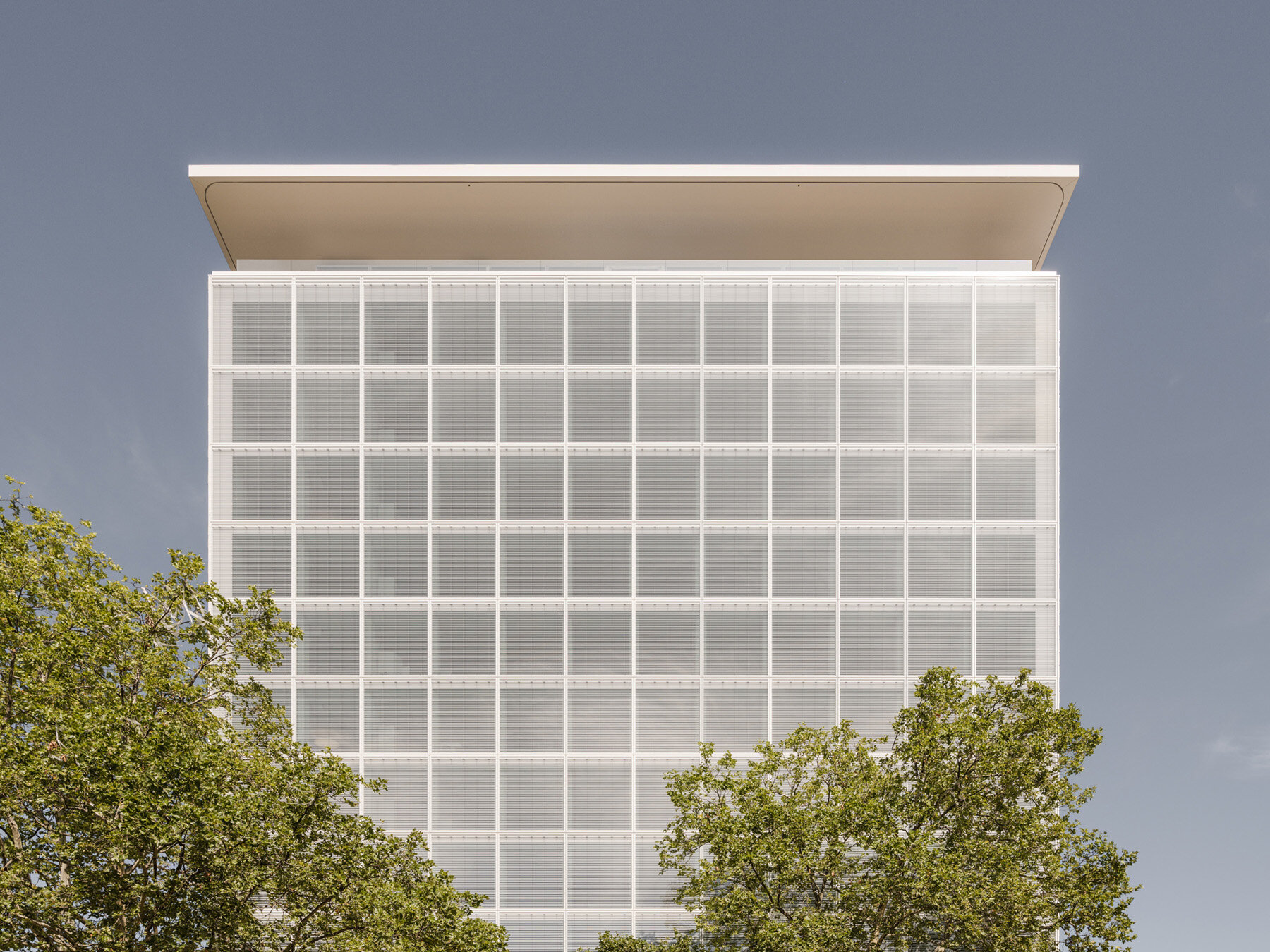
image © Maris Mezulis
Turrell combines 20,000 individual LEDs that reflect from the underside of the roof and glass facade, blending with light from the interior and allowing colors and spaces to merge. With its 360-degree perspective, the installation transforms the two towers into gleaming light-houses for Basel. Clad with around 24,000 hand-cast glass tiles, their facades add dimension to the light show. Access to the B1 Rooftop Bistro in the western tower is via a separate entrance and an express lift. Visitors are welcomed to the entrance hall by Diamond Glass, an installation also specially conceived by James Turrell. A special feature of this work is the diamond motif, which can also be found in Herzog & de Meuron’s facades and numerous other architectonic details.
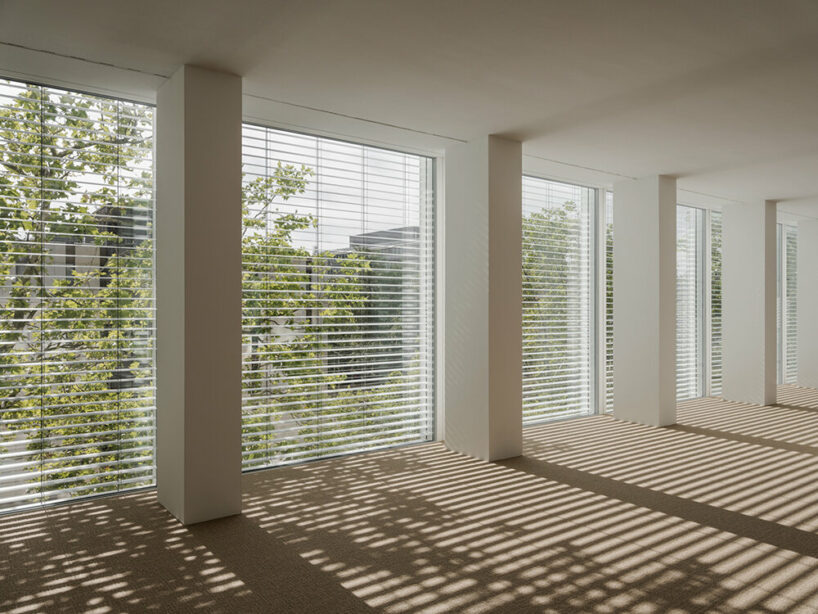
image © Maris Mezulis
The guest area, also designed by Herzog & de Meuron, is both cozy and sophisticated. The interplay of reflections and dark accents, combined with vibrant splashes of color and the overwhelming 360-degree view over the roofs of the city of Basel, promises a unique spatial experience. The B1 Rooftop Bistro is not only a meeting place for the Gellert district and the companies that surround it but also a club with a lively atmosphere. To combine these two gastronomic worlds, the new Bistro offers a diverse selection of meals and snacks and a modern drinks menu. Whether for morning coffee, lunch, or a cheerful afternoon on the terrace, the B1 Rooftop Bistro suits all tastes. For those who want a relaxed end to their day, this latest newcomer to Basel’s catering scene offers the perfect venue – high above the city’s rooftops. The installation is on display at dawn and evening, from dusk until the Bistro closes.
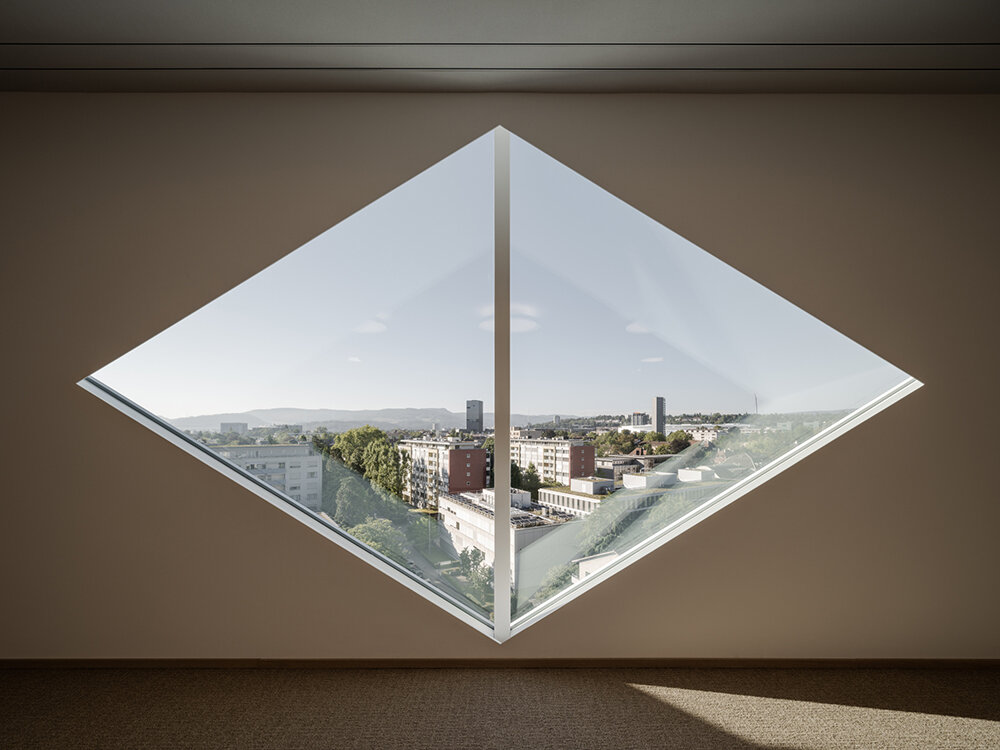
image © Maris Mezulis
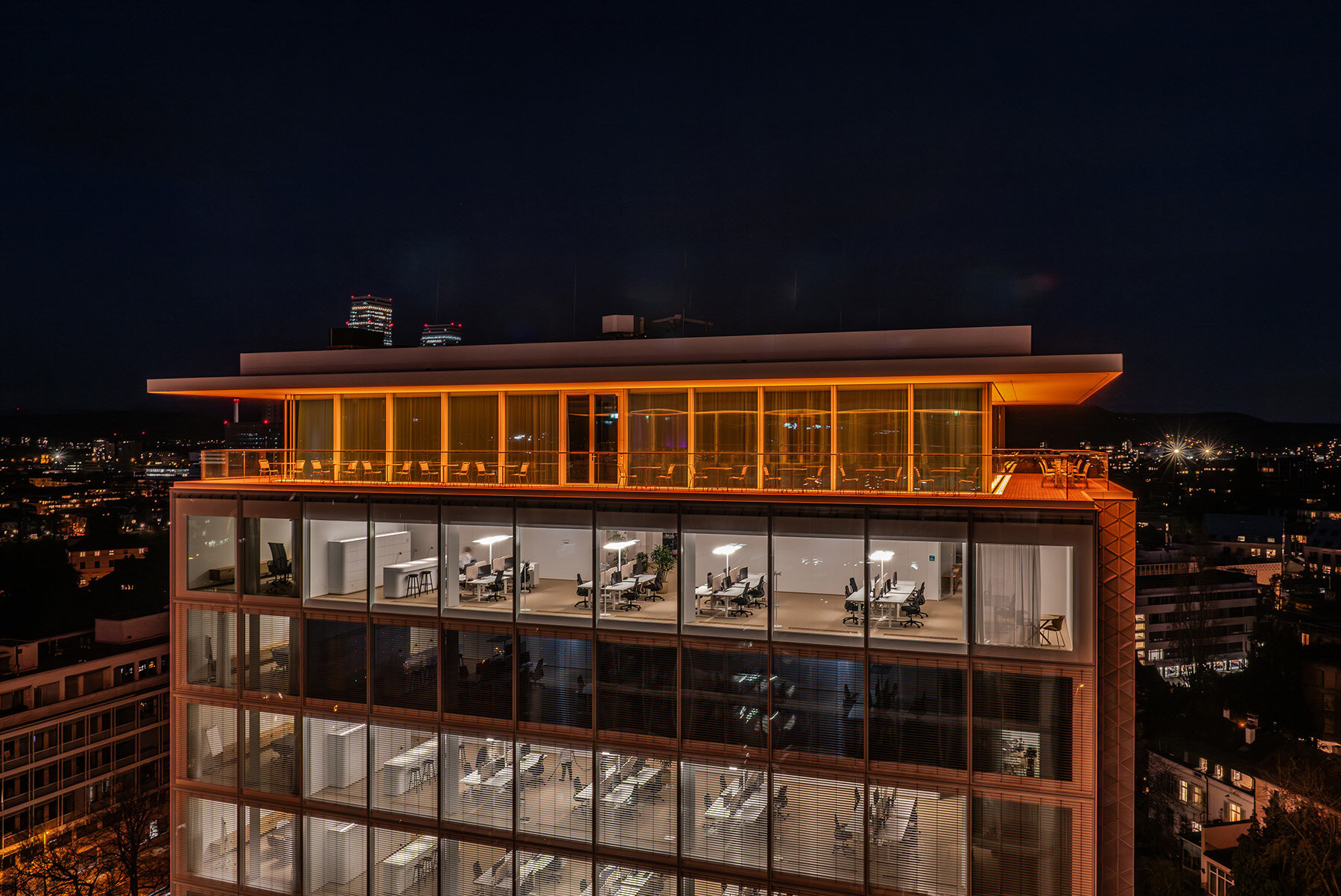
image © Remo Stalder, Helvetia
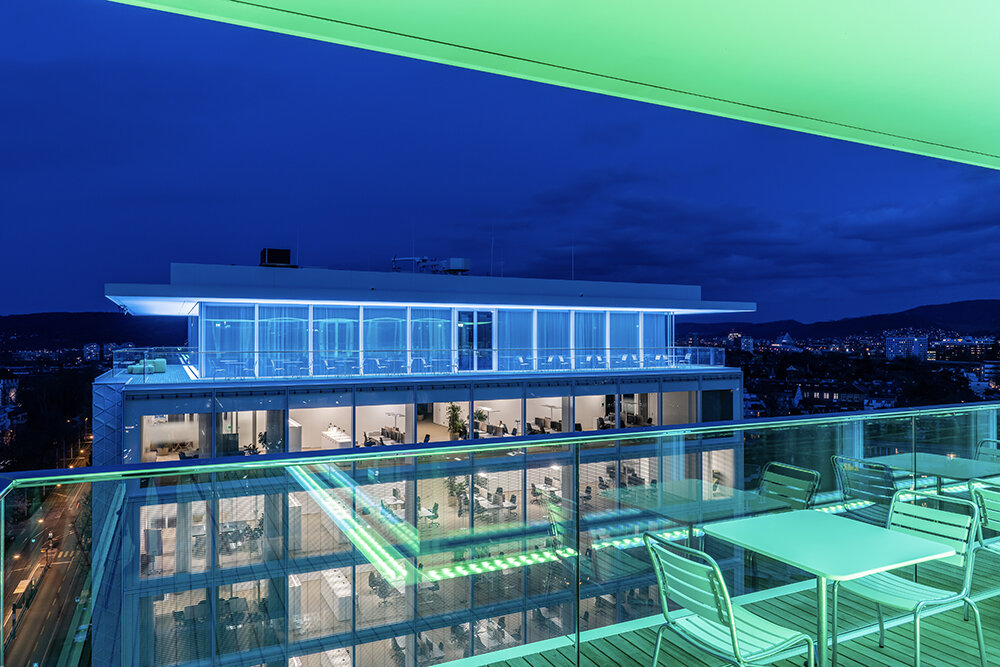
image © Remo Stalder, Helvetia
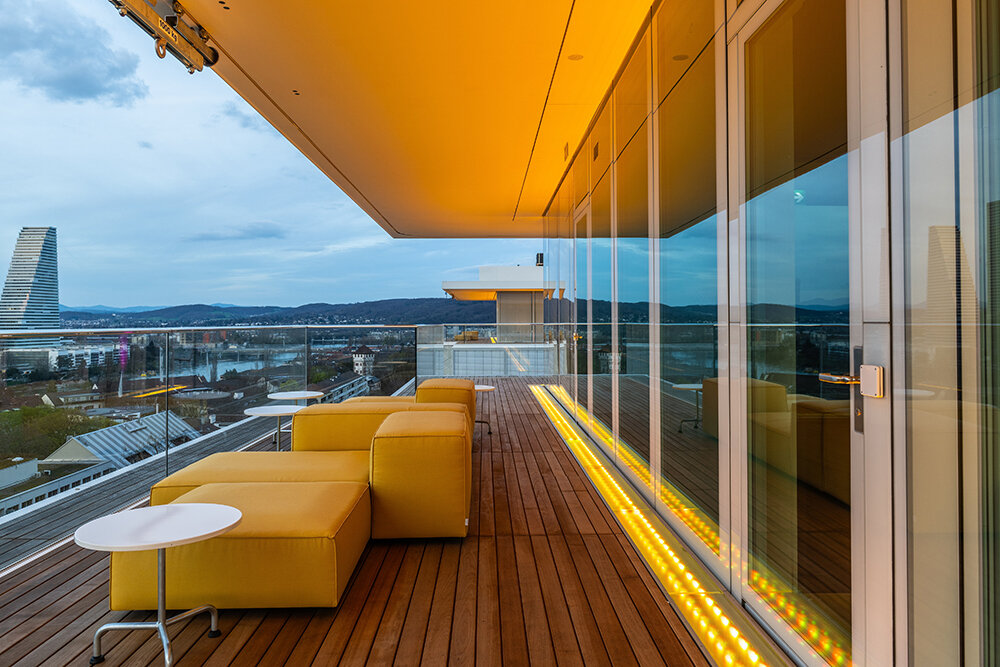
image © Remo Stalder, Helvetia
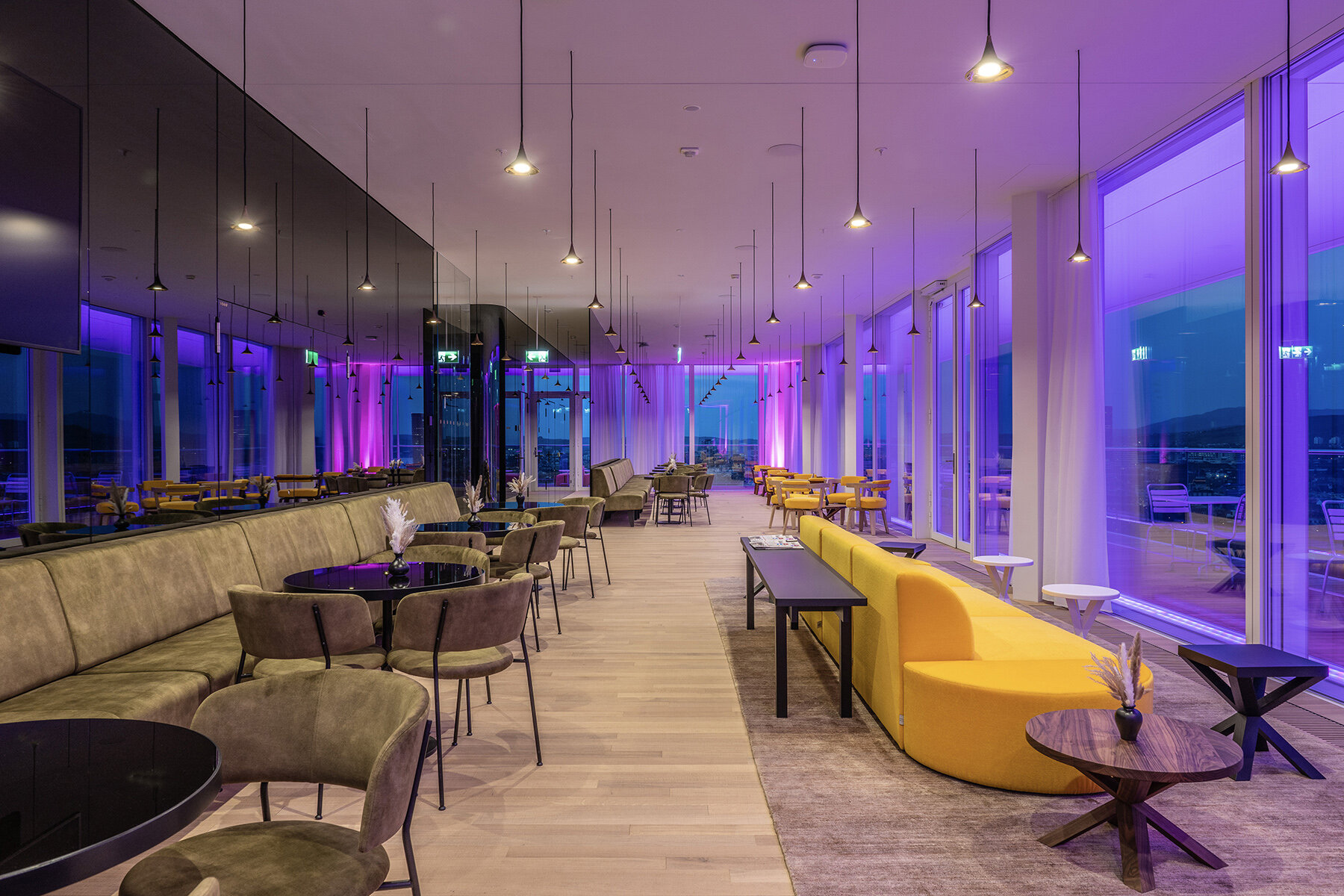
image © Remo Stalder, Helvetia
project info:
name: Helvetia Campus Basel | @helvetia.schweiz
location: Basel, Switzerland
architect: Herzog & de Meuron | @herzogdemeuron
light installation: James Turrell
client representative: Helvetia Versicherungen, Kai Wiborny
project number: 419
project period: 2013 – 2024
architecture in switzerland (243)
herzog and de meuron (179)
james turrell (30)
light installation art (154)
renovation architecture and design (819)
PRODUCT LIBRARY
a diverse digital database that acts as a valuable guide in gaining insight and information about a product directly from the manufacturer, and serves as a rich reference point in developing a project or scheme.
